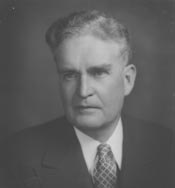A Quote by D. H. Lawrence
Literary criticism can be no more than a reasoned account of the feeling produced upon the critic by the book he is criticising.
Related Quotes
My literary criticism has become less specifically academic. I was really writing literary history in The New Poetic, but my general practice of writing literary criticism is pretty much what it always has been. And there has always been a strong connection between being a writer - I feel as though I know what it feels like inside and I can say I've experienced similar problems and solutions from the inside. And I think that's a great advantage as a critic, because you know what the writer is feeling.
First one gets works of art, then criticism of them, then criticism of the criticism, and, finally, a book on The Literary Situation , a book which tells you all about writers, critics, publishing, paperbacked books, the tendencies of the (literary) time, what sells and how much, what writers wear and drink and want, what their wives wear and drink and want, and so on.
I don't have a very high opinion, actually, of the world of criticism - or the practice of criticism. I think I admire art criticism, criticism of painting and sculpture, far more than I do that of say films and books, literary or film criticism. But I don't much like the practice. I think there are an awful lot of bad people in it.
Edmund Wilson was our greatest American literary critic because he was more than a literary critic: He was a fearless, even radical judge of the society he lived in. (See, for example, _A Piece of My Mind_; _The Cold War and the Income Tax_; the introduction to _Patriotic Gore_.) Our conventional critics cannot forgive him for those scandalous lapses in good taste.
What was needed was a literary theory which, while preserving the formalist bent of New Criticism, its dogged attention to literature as aesthetic object rather than social practice, would make something a good deal more systematic and 'scientific' out of all this. The answer arrived in 1957, in the shape of the Canadian Northrop Fryes mighty 'totalization' of all literary genres, Anatomy of Criticism .
The nineteenth century is a turning point in history, simply on account of the work of two men, Darwin and Renan, the one the critic of the Book of Nature, the other the critic of the books of God. Not to recognise this is to miss the meaning of one of the most important eras in the progress of the world.
No publisher should ever express an opinion on the value of what he publishes. That is a matter entirely for the literary critic to decide. I can quite understand how any ordinary critic would be strongly prejudiced against a work that was accompanied by a premature and unnecessary panegyric from the publisher. A publisher is simply a useful middle-man. It is not for him to anticipate the verdict of criticism.





































